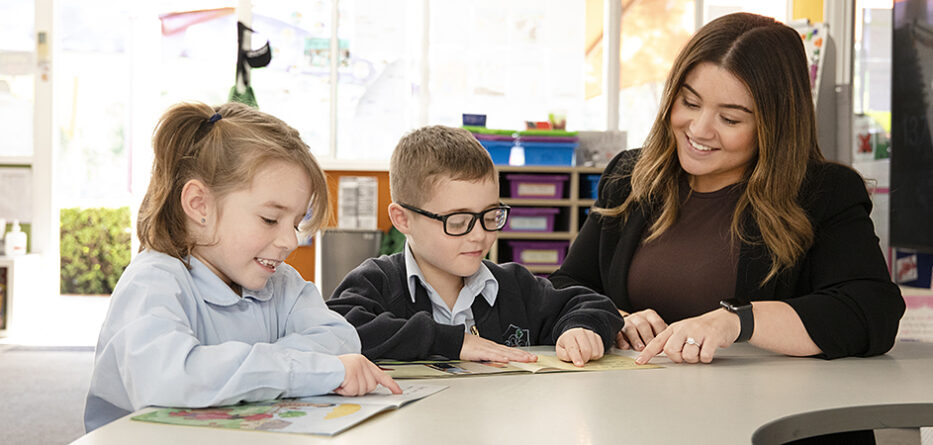In a world increasingly defined by technological advances, cultural shifts, and a fast-paced global environment, the value of education remains unwavering. For Catholic families and beyond, Catholic education represents more than just academic excellence; it is a proposition that seeks to nurture the whole person – mind, body, and spirit. It is grounded in the teachings of Jesus Christ, with an emphasis on faith, service, and moral integrity. In this sense, Catholic schools are not just places of learning but of formation, shaping young people to be leaders of compassion, justice, and hope in a complex world. Indeed, this moral imperative is further consolidated by a document published by the Vatican in 1977 entitled, The Catholic School.
The value of a Catholic education lies in its holistic approach. While academic growth is important, Catholic schools aim to develop students’ character and moral compass. Pope Francis has on various occasions emphasised that “education is an act of love.” He believes that an education that fosters intellectual and spiritual growth ably prepares our youth not only to succeed in their careers but to live lives of service to others, driven by the Gospel values of charity, compassion, and justice.
A Catholic education sets environments where students are encouraged to ask profound questions about faith, life, and the world around them. It is a journey of self-discovery, not only through intellectual curiosity, but also by deepening one’s relationship with God. Schools encourage prayer, participation in the sacraments, and reflection on Scripture, helping students to understand their place in the world and their responsibility toward others.
Students in Catholic education are supported to be critical thinkers and compassionate individuals, emphasising respect for the dignity of every person and an active engagement with social justice issues. Students are challenged to examine the world through the lens of the Gospel, and reflect how they can help build a more just and equitable society. It is not just about academic attainment but about a deep sense of responsibility to the common good.
Central to the Catholic educational experience is the integration of faith into all aspects of learning. Education in a Catholic school goes beyond the classroom, seeking to nurture the faith lives of students. Through prayer, liturgies, reflection days and retreats, students are encouraged to encounter Christ and explore their personal relationship with God.
This faith foundation serves as a source of strength and guidance, helping students navigate the challenges and choices they will inevitably face in life.
The Bishop of Parramatta, Bishop Vincent Long, is a strong advocate for the transformative power of Catholic education. In one of his speeches, he remarked, “Ours is a Christ-centred community that fosters not only intellectual growth, but just as importantly, young people’s emotional and spiritual growth.” (Keynote Address at the Catholic Schools Parramatta Diocese Symposium, 2022). Bishop Long’s words highlight the fact that Catholic schools are deeply committed to helping students grow not only in knowledge but in virtue, spirituality, and moral clarity. The experience in a Catholic school setting strives to form students to be disciples of Christ, eager to share the Good News and serve others in their community.
Bishop Long also emphasises the importance of Catholic schools being inclusive and welcoming to all students, regardless of their background. He notes that Catholic education should reflect the Church’s mission to serve the poor and marginalised. “God’s love is inclusive, is far reaching and it breaks down barriers. Catholic Education is about transformation and turning us into a symbol of God’s presence in the world” he stated in his Homily at a Catholic Schools Parramatta Diocese Education Mass in 2019. By teaching students to care for the most vulnerable in society, Catholic schools uphold the Church’s social teachings, reminding our youth that their faith calls them to love and serve others.
In the Australian context, Catholic schools consistently rank highly in academic achievement, demonstrating that a commitment to faith and values does not compromise the pursuit of excellence. Across the globe, Catholic schools provide a rigorous academic curriculum that fosters critical thinking and a love for learning. Yet, academic success in a Catholic school is always interwoven with a strong commitment to service.
The idea of service, or “caritas,” is integral to the Catholic educational experience. Pope Francis has often stressed that an authentic education must be linked to loving others and demonstrating a genuine desire to support the poor and marginalised in society. Catholic schools encourage students to see their education as a tool to make the world a better place. This might take the form of service-learning projects or advocacy for justice and peace. This approach not only forms young people academically but also socially, emotionally, and spiritually.
For many students, the experience of serving others is transformative. It helps them understand the value of humility, empathy, and solidarity. Additionally, it may amplify the messages of the Gospel even more. By seeing education as a means to serve, students are equipped to meet the needs of their communities and make positive contributions to society now and beyond. Catholic schools, therefore, have a dual mission – to foster personal academic achievement and to cultivate a commitment to the greater good.
In recent times, Catholic Schools Parramatta Diocese (CSPD) has consulted, planned and implemented a new system wide Strategy, which reinforces the mission of Catholic education by focusing on faith formation, excellence, wellbeing, innovation, inclusivity, and community engagement across Western Sydney and the Blue Mountains. This strategy outlines a clear vision to support students in becoming compassionate, creative, and capable individuals who are grounded in faith and prepared for the challenges of a rapidly evolving world. It rightly emphasises equitable access to high-quality education, fostering environments where every student is valued and empowered to flourish. By integrating contemporary and evidence based teaching practices with Gospel values, the strategy strengthens the commitment of CSPD Catholic schools to not only achieve academic excellence, but also nurture a deep sense of purpose, service, and belonging within their communities.
In an increasingly fragmented world, Catholic education provides a sense of belonging – a faith and learning community where students are not only known by their academic potential, but cherished as individuals made in the image of God. In this community, faith, hope, and love are not abstract ideals but lived realities. It is a place where students learn that their lives have purpose, and where they can develop the tools needed to be active agents of positive change in the world.
As Pope Francis and Bishop Vincent Long remind us, Catholic schooling is about more than academic success – it’s about forming young people to be beacons of hope, responsible stewards of the world, committed to justice, compassion, and the common good. In a rapidly changing world, the gift of a Catholic education remains a profound treasure, one that continues to shape and inspire generations of young people.
Frank Chiment is the Acting Principal at St. John XXIII Catholic College, Stanhope Gardens.








